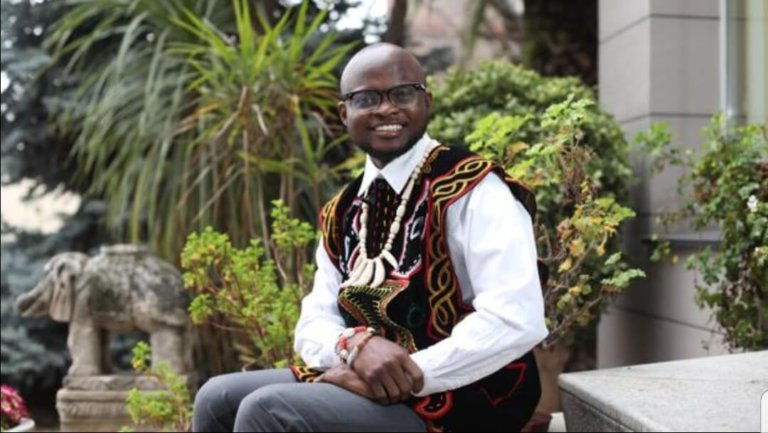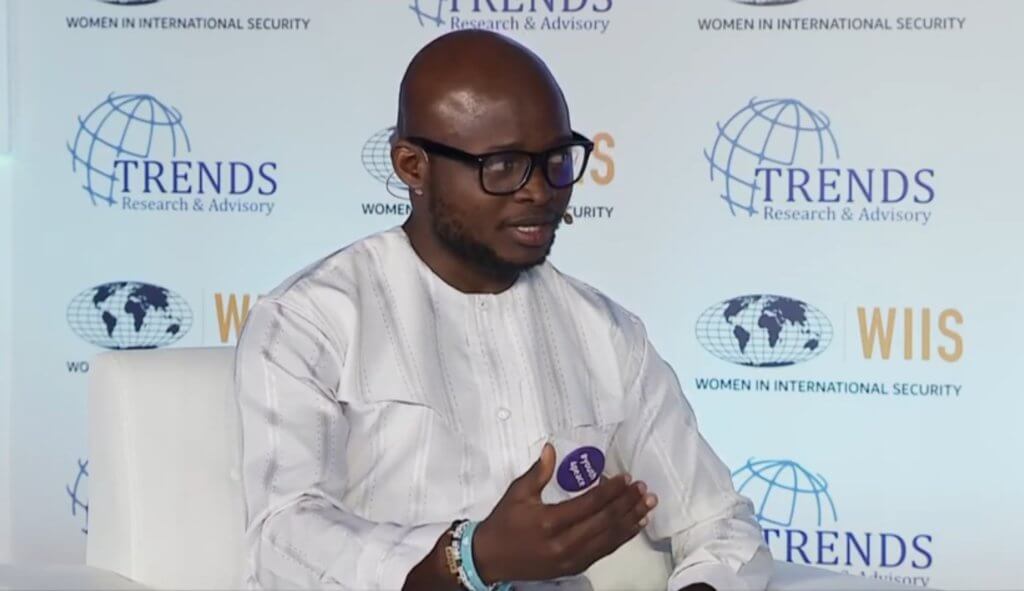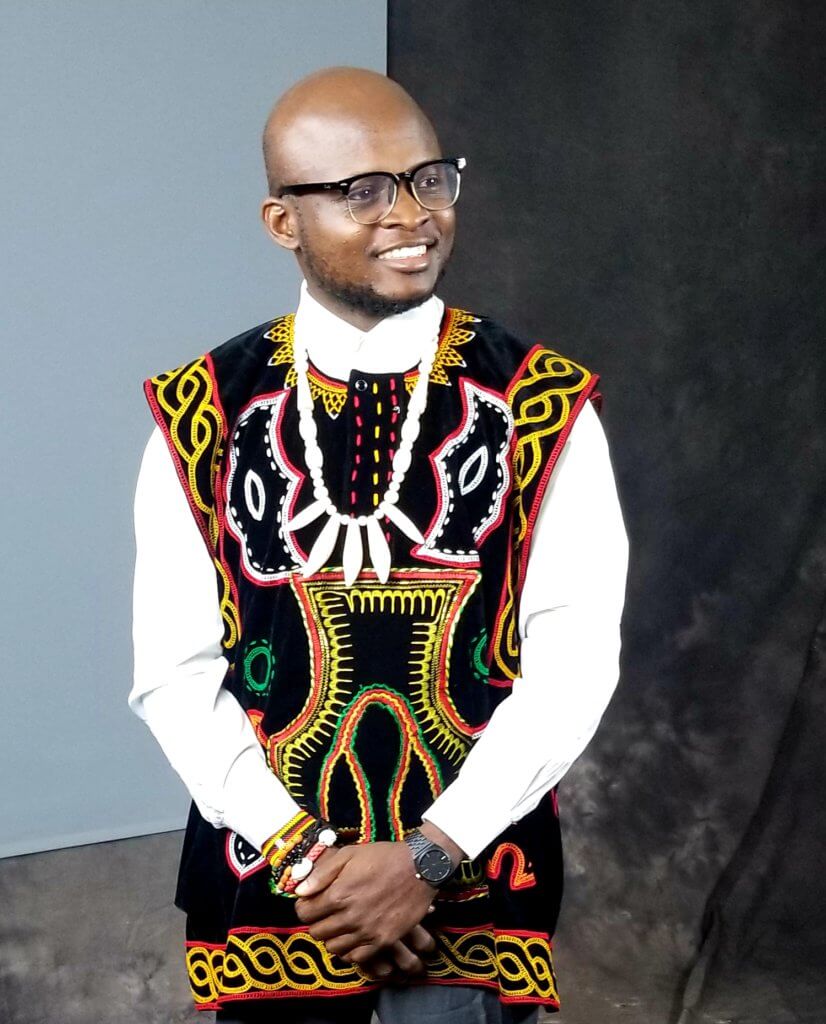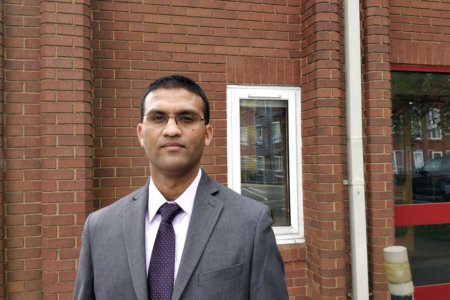
Growing up in the Cameroonian town of Fiango Kumba — known for violent extremist tendencies, crime and poverty — is not exactly the start that leads to awards and a meeting with the Queen of England.
Achaleke Christian Leke not only survived the horrors and massacres but grew up to be a peacebuilding expert. He has his parent’s foresight to send him to a boarding school far away to thank for this.
At first, it was tough adjusting to a new environment — at one point, he even got expelled from a secondary school. The turning point, however, came when he discovered theatre.
With an avenue to channel his creativity, he found a platform to shed light and bring awareness to topics such as HIV, violence, and rape. He would go on to university, graduate and win a Chevening scholarship to pursue his postgraduate degree in the UK.
Fast forward to now, he’s a member of the Dallaire Institute for Children, Peace and Security at Dalhousie University in Canada. His helpful hands know no bounds and this can be seen through the many awards he’s won.

“In 2016, I got to meet Queen Elizabeth when I received the Commonwealth Young Person of the Year Award. Since then, my life has revolved around peacebuilding and community development,” Leke says. Source: Achaleke Christian Leke
In 2020, he won the Premio Mundo Negro Award. Before that, the Luxembourg Peace Prize in 2018 and the Commonwealth Young Person of the Year Award in 2016. They recognise his years of peacebuilding and community development in conflict-affected areas in Cameroon.
We caught up with Leke to find out more about his career, how he got to meet the Queen and his Chevening experience:
Walk us through growing up in a community impacted by violence and how it led to your interest in peacebuilding and international development.
My interest in peacebuilding and international development definitely was inspired by my life. I grew up in a community that was known for violence, crime and poverty and I saw violent things like my peers fighting, killing, getting burnt alive, and so on. I realised the impact of this really troubled me.
Not only was I worried but my parents were also concerned about my safety and sanity. So, I was sent out of town to a boarding school when I was 16. During my time there, I picked up acting and theatre performance. I used this as a platform to share and talk about challenges within the community.
Topics like rape, HIV, violence, and so forth were things that led me to pick up on the dark aspects of development. At the same time, I wasn’t academically bright and I did terrible in school exams. I was actually expelled because I didn’t perform well and I had to repeat the class when I moved to a new school.
At this new school, I started getting more value because they were not just focused on the brightest students but also supported the talented ones too. I also noticed, since my mum was a history teacher, it was the easiest course for me to pass.
Then in 2007, I volunteered for an NGO as a theatre performer and I had my crew do shows within the local community. This is how I found my interest in community development and from there I grew in the organisation.
I studied history in uni because it was the easiest subject for me. Then, my lecturers then realised I had skills in public speaking, communication and research. So, I then studied the history of international relations since it was on par with my work experience in community development.
When I worked as deputy national coordinator for an NGO, I learnt about project management, project designing, and how to lead and manage people among other things. In 2014, I did my first international travel to represent young Cameroonians in community development and was also given the chance to be youth ambassador to the Commonwealth.
In 2016, I got to meet Queen Elizabeth when I received the Commonwealth Young Person of the Year Award. Since then, my life has revolved around peacebuilding and community development.
Then, what made you apply for the Chevening Scholarship? What was the application process like?
It definitely wasn’t a smooth process for me. Mostly due to the fact that I had a very low GPA which didn’t meet the requirement for uni in the UK and I also lacked confidence. I thought the Chevening committee only accepted those with top grades.
I had the professional credential but lacked a way to articulate it. Fortunately, in Cameroon, the Chevening programme has mentors you can share your application with. They help you correct your language, rate your application and approve it for submission.
When I first got rejected, I was doing consultancy for the Commonwealth Secretariat in London. I shared the news about it with the company director and she was surprised. She then asked me if I told the committee about my work and who I actually was.
Basically, I applied for the Chevening Scholarship again but this time I shared the links to my interviews, my work, my publications and everything. Before I got shortlisted for an interview, I was also invited to be a keynote speaker at the White House Summit to counter violent extremism in the US.
What about your impressive work in peacebuilding and community development in Cameroon? Share some interesting projects with us.
Prison-preneur is an initiative that facilitates the rehabilitation and reintegration of young violent offenders in eight prisons in Cameroon. This was when I received the Luxembourg Peace Prize in 2018.
With Salam School, we educate young children who are affected by Boko Haram terrorist group members. There are currently 150 children to whom we provide free schooling, psychosocial support, mental health support, food, and life skills.
The school was a project that started from scratch with no funding and now it’s seen as a major life-changer for these kids. My work revolves around working with disadvantaged communities and I specialise in peacebuilding.
Currently, we are trying to mobilise resources for children going back to school since they’re in very vulnerable situations. In Cameroon, we’re actually leading the process of influencing policy with the participation of the youth in peacebuilding — I’ve been lucky enough to travel to about 50 different countries for work and be a keynote speaker for over 200 events.
I also got into academics and started teaching at one of the state unis in my country. This is quite paradoxical since up until my MSc at the University of Birmingham, I was a third-class student and I returned as a teacher. I hope this inspires others to know that it’s not just about being the best in class — you have to want to do the right thing.
From your time at the University of Birmingham, what skills and knowledge gained there do you use now?
I think skills like research and academic writing. The degree under my Chevening scholarship required me to write articles and academic papers frequently. This helped me learn how to structure and refine my research skills.
Upon my return to Cameroon, we implemented these components in our work. Up till today, we have four books, provided support to UNESCO with research on some of their publications and a few other things.
Even getting into the academic space as a teacher is taken from my experience as a Chevening scholar. Being in the UK completely changed my perspective in interpersonal communication, diversity, inclusivity and so on.
I also developed my ability to analyse and look at things from a different lens. Not to mention, the alumni network that comes with the Chevening Scholarship is very supportive — they are my second family.
What do you wish you learned more of during uni?
I wish I could have learned more specifically on the subject matter of conflict, security and development. I also wish I could do it as a PhD programme which is what I’m hoping to do sometime in the future.
The theoretical learning about conflict around peacebuilding really is on par with my practical experience. What I really wish I had more of is time with my amazing lecturers with more courses so I can learn from them.
What do you see yourself doing in 10 years time?
In 10 years, my life would still revolve around social work and peacebuilding because it brings me a lot of joy. When we see children go to school to get the education they deserve, it makes us happy.
In 10 years time, I should have acquired my PhD, be teaching at uni and hopefully getting into politics as a local representative for my people. I feel that my years of experience serving and working in community development gives me a stronger mandate to be able to change things.

“I wish I could have learned more specifically on the subject matter of conflict, security and development. I also wish I could do it as a PhD programme which is what I’m hoping to do sometime in the future,” Leke says. Source: Achaleke Christian Leke
What did you miss during your Chevening experience in the UK?
Surprisingly, it wasn’t the food. Instead, it was all the smiles and faces of the people I worked with (such as the prisoners from one of my initiatives) and my family. That’s why, even during my programme in the UK, I was still working — doing reports, video calling, etc.
I even travelled back home a couple of times to attend some training. Immediately after I submitted my dissertation, I came straight back home to Cameroon.
Lastly, any words of advice for international students who want to apply for the Chevening Scholarship?
Don’t be discouraged and ensure you take the time so your application process is perfect. Reflect on everything and reach out to people who can mentor and give you advice.
Make sure you properly update your application and re-edit as many times as you can before you submit it. Don’t be afraid to apply even though you have low academic records because the Chevening Scholarship is aimed at changemakers.
Never give up!










